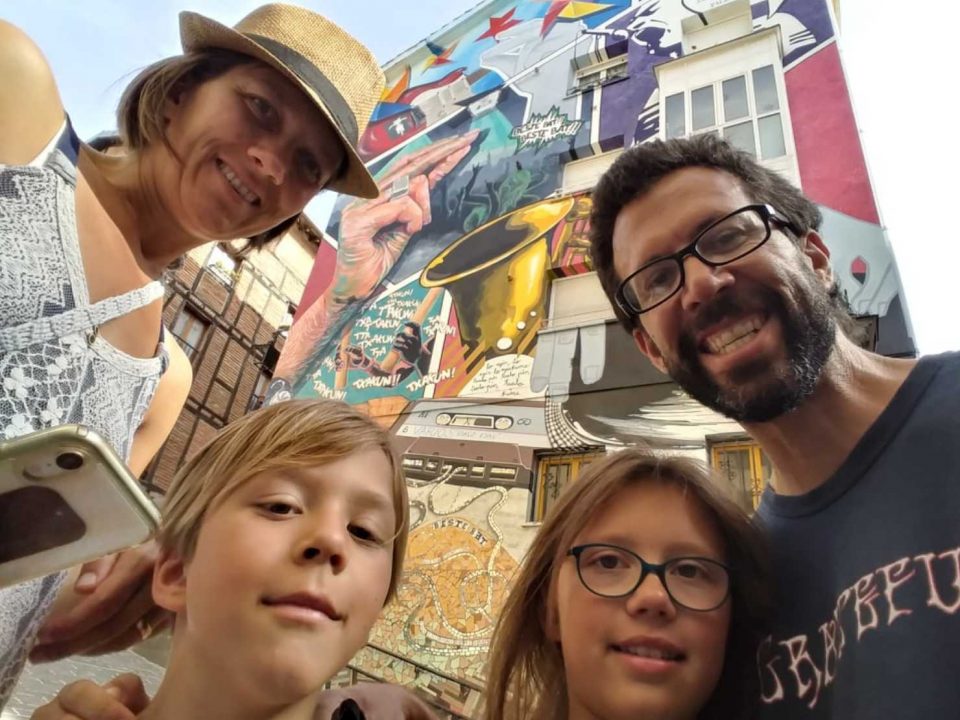
Workaway in Westerkappeln
July 4, 2016
Wasted Away Again in Westerkappelnville
July 24, 2016The Germans have a word for everything. That’s the overworked rumor anyway. Of course, like most stereotypes and urban legends, there’s some truth to it, and a whole lot of fiction. For instance, Germans don’t even have a word for squid. According to my wife, Germans have only one word for what we call squid and octopus. But squid so seldom comes up in casual conversation that we could hardly consider this a major deficit in the language.
It’s quite true however that the Germans are fond of stringing words together to create new words to define things that we would need a whole sentence to describe in English. This week, for example, one of my duties here in Westphalia was to help construct a totholzhecke, which literally translates into dead-wood-hedge, or what we might call “a makeshift fence built from dead branches and fallen timber”. But the mere existence of this elegant German word seemed to lend an air of officious importance to my otherwise mundane chore.
Yet the real winner so far on this trip has been zahnlückenpubertät, which can be translated as tooth-gap-puberty, or what we would describe in English as “that awkward period of heightened emotional drama coinciding with the age characterized by missing baby teeth”. The good news is that this word unabashedly confirms everything we have come to love and dread about the German language. The bad news is that it was through personal experience that we became familiar with the concept.
Sometime in the second month of our trip, during our first wwoofing gig in Loebau, our six-year-old daughter lost what we think was her ninth baby tooth. Physiologically speaking, I believe this would mark something close to peak zahnlückenpubertät. I’m afraid we can also confirm a few behavioral symptoms in support of this diagnosis. Issues with authority, extreme mood swings, and general smart-aleckiness could be counted among them.
On the one hand, the fact that Germans actually have of word for this taxing phase, did provide us with some sense of comfort. Apparently it’s not at all unheard of for children our daughter’s age to go through similar periods of irritating moodiness and flagrant pigheadedness. On the other hand, we have to consider the possibility that this amusing idiom might just being providing us with a convenient escape from personal responsibility. We’d prefer not to attribute a few episodes—or a recurring string—of misbehavior to our own radical change of lifestyle and total abandonment of structure and routine.
It’s a widely shared belief that children thrive under patterns and predictability, and that disturbances can be a source of serious distress. Of course, children aren’t the only ones who can grow calcified in their habits and become traumatized by change. This has everything to do with why some people find travel challenging, and a big part of why we consider it essential. A reliable routine can be comforting and easy, like watching lots of daytime television.
Delving into new experiences and unfamiliar surroundings, however, can sharpen the senses, expand one’s comfort zone and promote personal growth. The important thing is to remember, and to remind the children, that we are always going to be together and safe, and that no matter where we end up, we’ll always have each other. For our three-year-old son, this seems to be an adequate reassurance, although he still needs to test out his boundaries from time to time, as three-year-olds habitually do. But for our daughter in the height of tooth-gap-puberty, this confinement to the familial unit may be a little too restrictive.
She had a wonderful circle of friends back in California, and a variety of semi-regular outings and activities, from tide-pooling to gymnastics. And now, it’s basically anybody’s guess from one day to the next, and it’s not been easy finding steady playmates her own age. But it’s been going more smoothly lately, as she really seems to be getting into the swing of things, and expressing curiosity and enthusiasm about the farms and countries will be visiting after this.
Once in while she still insists on ignoring her parents, but then out of nowhere she’ll ask us if we know where the South Sandwich Islands are, letting us know that she does. A quick look at the world map confirms that she is absolutely right. Announcements like this make up for some of her more convoluted attempts to outwit us with logic, and statements like, “It’s ok, I already asked Mommy, and she said yes, and this time I’m telling the truth.”
It’s a whole new world for us now, and every three of four weeks it’s a new household with new children, new parents, new eating habits, and new house rules. I figure it’s understandable for any of us to have a little nervous breakdown of sorts every once in a while, but so far we’re still holding up pretty well and demonstrating a keen ability to adjust and adapt.
At the moment we are enjoying life in a trilingual household, where mom is German and dad is Norwegian. The parents speak to each other in Norwegian, and to the children in their native tongues. The children include two sets of twins, nine months and 2.5 years old—talk about expanding the comfort zone. We also speak a lot of English, not surprisingly, but our kids are already picking up some Norwegian vocabulary, though nothing to compare with the likes of zahnlückenpubertät.
FURTHER READING: For more stories about our quest for quality education, check out this fantastic series of articles.





